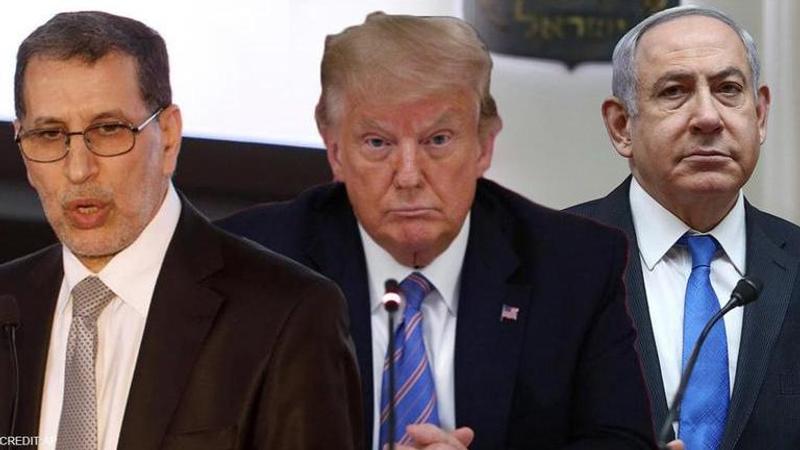Published 14:58 IST, September 14th 2020
After UAE & Bahrain deals, Trump aims at initiating direct flights between Israel, Morocco
In a bid to establish diplomatic relations between Israel and Morroco, US President Donald Trump is aiming to introduce direct flights between the two countries

Following the normalisation deals with the United Arab Emirates (UAE) and Bahrain, US President Donald Trump is now aiming to introduce direct flights between Israel and Morocco, in a bid to establish diplomatic relations. The low-level ties between the two countries began in 1993 after an Israeli-Palestinian peace deal.
Moroccan Prime Minister Saadeddine Othmani had earlier opposed to a normalization agreement with Israel, citing the rights of the Palestinians. However, the Prime Minister later cleared that he had spoken in his capacity as chairman of the moderate Islamist Party for Justice and Development (PJD) and not on behalf of the government.
Orchestrated by the US, this deal comes a month after the United Arab Emirates established full diplomatic relations with Israel, becoming the third nation to do so in the region, after Jordan and Egypt.
Bahrain Inks Peace Deal With Israel
In what the United States boasts as the second breakthrough to normalise the situation in West Asia, Bahrain has signed a ''peace deal'' with Israel. With these developments in West Asia, US President Donald Trump claims that his administration has achieved major success in bringing peace in the region. However, not all has gone well with the neighbours of Israel and countries which have decided to recognise the Jewish state.
Relation of Israel with other Arab countries
The Jewish state of Israel was formed in 1948, and since then the country has fought eight wars with its Arab neighbours. These wars predominantly stemmed from the conflict between Palestine and Israel. After World War II, demand for a homeland for Jews in the Arab dominated Palestine grew. Back then, Palestine was under the British mandate, but when it ended in 1947, the United Nations (UN) proposed an Arab-Jewish partition of Palestine. This partition plan mandated 53 percent of the land to the Jewish-majority state and 47 percent to the Palestinian-majority state. The Arab dominated West Asia did not accept a Jewish nation giving rise to conflict in the region. While Egypt and Jordan established diplomatic ties later, other Arab countries are of opinion that they would withhold recognition till the formation of a Palestinian state in the West Bank and Gaza Strip. However, there has been a major shift recently.
Image credit: AP
Updated 15:20 IST, September 14th 2020




